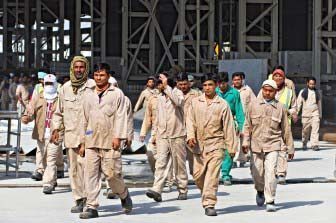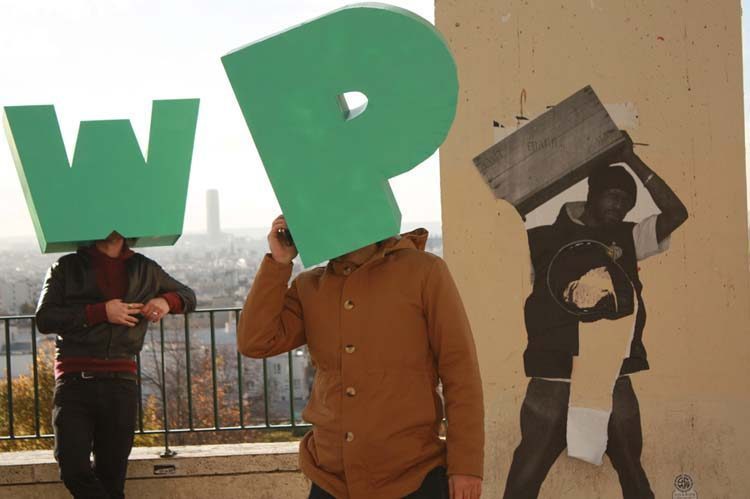



All images from 1week1project
Two international architects have proposed a new “fantasy project” that has been drawing some online attention – a concrete monolith that would honor the construction workers who died while building Qatar’s 2022 World Cup stadiums.
Dubbed the Qatar World Cup Memorial, the structure would be located outside of the capital. It would be scalable and is designed around the concept of concrete blocks, each representing a deceased person, that could be built up to resemble a Jenga-like tower.
French-Chilean architects Alex de Stampa and Sylvain Macaux drafted the designs as part of their exercise 1week1project, in which they challenged themselves to come up with 52 new concepts over the course of a year.

While the project will likely never come to fruition, it serves to highlight concerns about the safety of the thousands of workers who will build Qatar’s stadiums, and is a way to honor those who may die in the process.
The proposal comes at a time of heightened attention locally and globally on the rights and conditions of Qatar’s low-income expats.
The inspiration for the designs may have come from some international media reports stating that large numbers of people have already died working on World Cup-related projects here.
However, construction has just begun in the last few months on the only specific World Cup projects that Qatar is looking at – its stadiums.
Still, it’s true that collectively, thousands of expats have died in Qatar over the past couple of years, many of them relatively young construction workers, according to embassy reports.
But given the country’s expat-majority demographic, officials here have argued that many of these deaths are likely not related to poor working or living conditions.
Design idea
De Stampa and Macaux’s concept for the memorial is based on a design of four modules per floor, with two staircases rising up along opposite ends of each block, which would allow relatives and visitors to move around the structure and explore it in different ways.

A crane would sit atop the building, adding modules until the World Cup opens.
Describing their idea on their website, the architects say:
“The Qatar World Cup Memorial project is a scalable building that raises awareness about the number of workers who died during the construction of the stadiums for the 2022 World Cup in Qatar. It is in the form of a tower made of concrete modules, each one representing a deceased worker. The higher the number, the higher the tower.
This structure offers Nepalese and Indian families as well as families of other nationalities a site for mourning removed from Qatar’s cities and skyscrapers.”
World focus
Since Qatar won hosting rights for the 2022 World Cup four years ago, it has come under intense scrutiny from global media and human rights organizations about the treatment of its hundreds of thousands of migrants workers.
In response, some organizations, including the Supreme Commitee for Delivery & Legacy (SCDL) – the body responsible for implementing plans for the World Cup, and Qatar Foundation have introduced a number of initiatives, including a Workers’ Charter.
The document outlines basic working and living conditions that must be provided for all their construction staff, and all contractors are required to adhere to it.

Meanwhile, earlier this year, the government announced a number of reforms to its Labor Law, and thus Qatar’s restrictive kafala (sponsorship) system, including provisions requiring companies to pay workers’ wages directly into their bank accounts to avoid late payments or non-payment, and to make it easier for expats to switch jobs and leave the country.
The revisions to the law were expected to be discussed by Qatar’s Advisory (Shura) Council when it met last month. However no firm date has been given for when the changes will be implemented.
Labor and Social Affairs Minister Dr. Abdullah Saleh Mubarak Al Khulaifi has been quoted in local media as saying the changes could take place late this year, or early next year.
Source: dohanews.co




